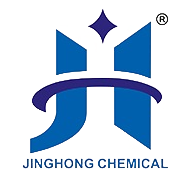Methyl Hydroxy Ethyl Cellulose (MHEC) is a versatile and essential polymer in various industries, from construction to cosmetics. Its unique properties of water retention, thickening, and stabilizing make it indispensable in many products. But what exactly makes MHEC so widely used?
MHEC is a modified cellulose ether, synthesized by reacting cellulose with methyl and hydroxyethyl groups. This modification provides it with improved water solubility and viscosity, making it ideal for a variety of applications. Due to its versatile nature, MHEC has gained significant demand across different sectors worldwide.
MHEC in the Construction Industry
MHEC is commonly used in the construction industry, particularly in cement and mortar. Its primary role is to enhance the workability and adhesion of construction materials. By improving the water retention properties, MHEC helps in reducing cracking, enhancing the overall durability of the final product. In dry-mix mortars, it ensures better flowability and pumpability, improving efficiency during construction.
In cement-based products, MHEC acts as a binder, ensuring proper consistency and ensuring easy application. It also helps to control the setting time, allowing for better flexibility during construction activities.
MHEC in Paints and Coatings
In the paint and coatings industry, MHEC serves as an essential thickener and stabilizer. Its ability to control viscosity ensures that the paint has a smooth, consistent texture, which is critical for easy application and uniform finish. MHEC enhances the paint’s flow properties, preventing drips and ensuring an even coat across surfaces.
In addition, it contributes to the durability and resistance of the coating, especially in external environments. It also helps in preventing pigment separation, ensuring that the final product retains its color and appearance for a longer time.
MHEC in the Oil and Drilling Industry
In the oil and gas sector, MHEC is used in drilling fluids, commonly known as drilling mud. MHEC’s role here is as a thickening agent and rheological modifier. It improves the viscosity of the fluid, providing better stability and flow control during drilling operations. By enhancing the mud’s ability to carry cuttings to the surface, MHEC helps reduce the risks of wellbore instability and improves drilling efficiency.
The controlled flow properties also ensure that the drilling process is smoother and less prone to interruptions, which is critical in minimizing downtime and increasing productivity.
MHEC in Household and Personal Care Products
MHEC plays a key role in personal care products, particularly in formulations like shampoos, conditioners, body washes, and lotions. It is used as a thickener to improve the consistency of these products and enhance their sensory properties. In personal care products, MHEC can help achieve a smoother, more pleasant texture, which improves the overall user experience.
In shampoos and body washes, MHEC also helps maintain the stability of emulsions and prevents separation of ingredients. Its gentle nature also ensures that it does not irritate the skin or scalp, making it an ideal ingredient for products that are applied to sensitive areas.
Other Applications of MHEC
Apart from the above industries, MHEC is also used in a variety of other fields. In the pharmaceutical industry, it is used as a binder and controlled-release agent in tablets. In the food industry, MHEC can be used as a thickener or stabilizer in food products like sauces, dressings, and frozen desserts.
Additionally, MHEC has potential applications in biotechnology and agriculture, where it can be used to stabilize suspensions and improve water retention in soils. This wide range of uses makes MHEC an invaluable resource in modern industry.
Summary
Methyl Hydroxy Ethyl Cellulose (MHEC) is a highly versatile compound used in multiple industries, from construction to personal care. Its ability to improve viscosity, stability, and water retention makes it an essential ingredient in a wide range of products, and its applications are expected to continue expanding in the future.



